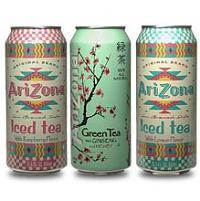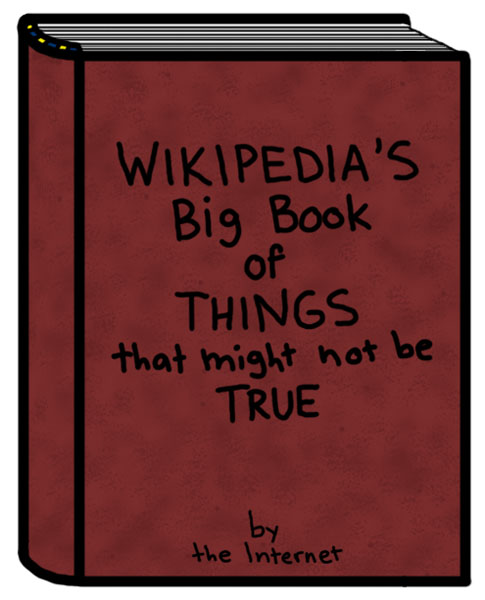
As a loyal drinker of multiple favors of Arizona Iced Tea, I began to wonder.. Is there an addictive ingredient in this, or did they just develop a recipe for liquid heaven? What goes into this stuff? Also, how did this company develop a beverage for all situations, events, and moods? How do they sell such a large quantity of the beverage for such an affordable price? Do they sell it this cheap because they were somehow able to predict a recession in our economy? Why does it taste so much better in cans? I decided to begin a journey to answer all of these questions, just in case I was digesting crack-cocaine daily.
Who Makes Arizona Iced Tea?
Contrary to popluar belief, Arizona iced tea is not made by Jesus himself. The first can of Arizona Iced Tea was sold in 1992 in Queens, New York. The company is owned by Ferolito, Vultaggio & Sons, who to that point mostly sold malt liquor and beer, such as Crazy Stallion and Mississippi Mud. They still produce the teas to this day, and have expanded to juices, and energy drinks.
I find it suspicious that a company who specialized in malt liquors decided to start brewing tea. If you know your beers, then you know that beers are either “top fermented” or “bottom fermented.” Porters, ales, and stouts are top fermented and malt liquor is bottom fermented, which means the wort (the resulting brew of malt, prepared cereals like corn or rice, hops and water) is fermented by yeast of the bottom fermentation type (i.e. yeast which settles to the bottom of the fermenting tanks). Top fermenting yeast does the opposite. Malt liquor is made from a wort containing a high percentage of fermentable sugars which makes it slightly sweeter and a bit spicy in flavor and also raises the alcohol content.
Does it alarm anyone else that this company knows this much about chemistry? I’m getting to the bottom of this.
What’s in the Stuff?

I figured the easiest way to get to the bottom of which ingredient was making this drink so addictive, would be to look them all up on Wikipedia and provide a brief summary for each. I was careful to look out for words/phrases such as “crack“, “narcotic“, “causes dependency“, “will force you to enter rehab to quit“, “junkie creating“, “in some cases, caused consumer to sell all posessions and abandon family to support habit”, and “do not consume or else…”. I also looked out for anything to do with Jesus or Heaven.
Note: These are the ingredients for a can of Green Tea with Ginseng. I have had an addiction to this specific beverage for 6-7 years now, so I thought this would be the best one to analyze (for selfish reasons).
- Premium Brewed Green Tea Using Filtered Water
- What it is: Type of tea made solely with the leaves of Camelliasinensis, that has undergone minimal oxidation during processing
- Effects on Human Body: Over the last few decades green tea has been subjected to many scientific and medical studies to determine the extent of its long-purported health benefits, with some evidence suggesting regular green tea drinkers may have lower chances of heart disease and developing certain types of cancer.
- Addictive? While unproven, many claim that green tea consumption should be restricted because it contains stimulants (Caffeine). This wasn’t too alarming to me, because I have consumed many beverages for many years that contain caffeine, and they don’t have an effect on me at all. This may be a direct result of my attention defecit disorder. Yeah, probably.
- Honey
- What it is: Sweet fluid produced by honey bees and derived from the nectar of flowers. Mainly fructrose and glucose, making it similar to corn syrup.
- Effects on the Human Body: Honey is mostly sugar, but does contain a small amount of carbohydrates and vitamins. While not great because of the sugar content, honey is a relatively healthy product to put in your body.
- Addictive? Findings showed no addictive ingredients, or studies on honey junkies. In fact, people reccomend using honey to cure sugar addictions. While this sounds great, I do not believe there is enough research completed to rule out honey as the addictive ingredient. Honey will remain a suspect.
- Citric Acid
- What is is: A weak organic acid natural use as a preservative. Also used to add an acidic, or sour, taste to foods and soft drinks.
- Effects on Human Body: Citric acid comes from citrus fruits such as lemons and limes, and is important as an intermediate in the citric acid cycle and therefore occurs in the metabolism of almost all living things. No specific negative effects could be found in my research.
- Addictive? It has been proven that the properties of citrus fruits actually help to combat addictions of all types; but especially sugar addiction. The glucose, or fruit sugar, combined with citric acid, help to form a defense against those unhealthy cravings. From this information, I guess it is safe to say that citric acid successfully cancels out the possibility that honey is the addictive ingredient. Now we’re back where we started. Great.
- Vitamin C
- What it is: An essential nutrient for all living species.
- Effects on Human Body: Required for a range of essential metabolic reactions in all animals and plants. It is made internally by almost all organisms, humans being a notable exception. It is widely known that a deficiency in this vitamin causes scurvy in humans.
- Addictive: No research found regarding addictive traits of Vitamin C, although high doses may result in diarrhea. No one likes diarrhea, but that’s not the focus here. I found no information on Vitamin C junkies, or anything having to do with Vitamin C addiction. I admit I didn’t conduct too extensive of a study on this ingredient because I thought it was pretty stupid to consider Vitamin C as addictive. Moving on..
- Sugar
- While I am trying to be as informative as possible, I think I know enough about sugar to conclude that while addictive, it is not what forces me to visit the gas station several times per day for the beverage. If this were the case, I would be brewing my own sweet tea at home and growing sugar cane in my bedroom. While that sounds absolutely delicious and a great idea, it’s not something I’m willing to do.
- Acesulfame Potassium
- What is is: A calorie-free artificial sweetener, also known as Acesulfame K or Ace K (K being the symbol for potassium), and marketed under the trade names Sunett and Sweet One.
- Effects on Human Body: Acesulfame Potassium is a calorie-free sweetner, which obviously saves people some unwanted calories. Critics of the use of acesulfame potassium say the chemical has not been studied adequately and may be carcinogenic, although these claims have been dismissed by the USFDA
- Addictive? No research indicated anything addictive, but that whole carcinogen thing is pretty scary. Plus that long name is a little overwhelming.
- Ginseng Extract
- What it is: Extract from a species within Panax, a genus of 11 species of slow-growing perennial plants with fleshy roots, in the family Araliaceae. are taken orally as adaptogens, aphrodisiacs, nourishing stimulants, and in the treatment of type II diabetes, including sexual dysfunction in men. The root is most often available in dried form, either whole or sliced. Ginseng leaf, although not as highly prized, is sometimes also used; as with the root it is most often available in dried form
- Effects on Human Body: It has been difficult to verify the medicinal benefits of ginseng using science, as there are contradictory results from different studies, possibly due to the wide variety and quality of ginseng used in studies. Ginseng is promoted as an adaptogen (a product that increases the body’s resistance to stress), one which can to a certain extent be supported with reference to its anticarcinogenic and antioxidant properties
- Addictive? Because of its effect on stress, memory, and energy levels, more and more people are becoming dependent on ginseng. It is an ingredient for a large marjority of energy on the market today. One opinion piece (http://www.bluedamage.com/2004/09/16/ginseng-drug-addiction/) calls it the “new crank”. We may have something here. Wait, I just noticed that’s from a fake news site. Damnit. Disregard all content added from that website.
Conclusion
Well, I couldn’t find anything about Arizona’s ingredients being addictive besides the fact that it contains caffeine and some fake news site said it’s the new crank. This was disapointing because my addiction still remains, and so many questions are still unanswered. I guess I will continue to drink this delicious beverage in large amounts, and wait until the Food and Drug Administration tells me to stop.
Arizona – The Universal Beverage
There seems to be an Arizona beverage for all situations, moods, experiences, whatever you want.
- “I just woke up and am on the way to work. I’m driving, and can’t really see. I could be a hazzard to other drivers on the road”.
- The drink for you: RX Energy – A delicious blend of citrus juice, tea, and natural ingredients promoting energy.
- “I’m going to Florida for spring break with the girls. I just broke up with my boyfriend, and I really need to watch my figure so I can pick up some studs on the beach.”
- The drink for you: Diet Green Tea with Ginseng
- “I love tea and lemonade so much. I just can’t ever chose which one to drink!”
- The drink for you: The Arnold Palmer – 1/2 tea, and 1/2 lemonade. As a whole, delicious.
- “I’m from the south and I take my tea seriously. I don’t want none of that unsweetened garbage. I want diabetes, damnit!”
- The drink for you: Sweet Tea – A legit sweet tea that will eventually cause type-2 diabetes for all consumers.
- “You know, I love tea but caffeine just makes me crazy. Everytime I drink it, I’m up all night reading my Twilight books.”
- The drink for you: Botanical Green Tea — Decaffeinated.
- “Man, I hate tea. Give me some of that purple stuff.”
- The drink for you: Grapaid
